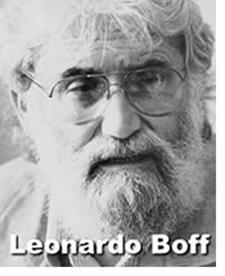 A Concise History of Liberation Theology
A Concise History of Liberation Theology
By Leonardo and Clodovis Boff. From the book Introducing Liberation Theology published by Orbis Books. Reprinted by permission.
Antecedents
The historical roots of liberation theology are to be found in the prophetic tradition of evangelists and missionaries from the earliest colonial days in Latin America — churchmen who questioned the type of presence adopted by the church and the way indigenous peoples, blacks, mestizos, and the poor rural and urban masses were treated. The names of Bartolomé de Las Casas, Antonio de Montesinos, Antonio Vieira, Brother Caneca and others can stand for a whole host of religious personalities who have graced every century of our short history. They we the source of the type of social and ecclesial understanding that is emerging today.
Social and Political Development
The populist governments of the 1950s and 1960s — especially those of Perón in Argentina, Vargas in Brazil, and Cárdenas in Mexico — inspired nationalistic consciousness and significant industrial development in the shape of import substitution. This benefited the middle classes and urban proletariat but threw huge sectors of the peasantry into deeper rural marginalization or sprawling urban shantytowns. Development proceeded along the lines of dependent capitalism, subsidiary to that of the rich nations and excluding the great majorities of national populations. This process led to the creation of strong popular movements seeking profound changes in the socio-economic structure of their countries. These movements in turn provoked the rise of military dictatorships, which sought to safeguard or promote the interests of capital, associated with a high level of “national security” achieved through political repression and police control of all public demonstrations.
In this context the socialist revolution in Cuba stood out as an alternative leading to the dissolution of the chief cause of underdevelopment: dependence. Pockets of armed uprising appeared in many countries, aimed at overthrowing the ruling powers and installing socialist-inspired regimes. There was a great stirring for change among the popular sections of society, a truly prerevolutionary atmosphere.
Ecclesial Development
Starting in the 1960s, a great wind of renewal blew through the churches. They began to take their social mission seriously: lay persons committed themselves to work among the poor, charismatic bishops and priests encouraged the calls for progress and national modernization. Various church organizations promoted understanding of and improvements in the living conditions of the people: movements such as Young Christian Students, Young Christian Workers, Young Christian Agriculturalists, the Movement for Basic Education, groups that set up educational radio programs, and the first base ecclesial communities.
The work of these — generally middle-class — Christians was sustained theologically by the European theology of earthly realities, the integral humanism of Jacques Maritain, the social personalism of Mounier, the progressive evolutionism of Teilhard de Chardin, Henri de Lubac’s reflections on the social dimension of dogma, Yves Congar’s theology of the laity, and the work of M.-D. Chenu. The Second Vatican Council then gave the best possible theoretical justification to activities developed under the signs of a theology of progress, of authentic secularization and human advancement.
The end of the 1960s, with the crisis of populism and the developmentalist model, brought the advent of a vigorous current of sociological thinking, which unmasked the true causes of underdevelopment. Development and underdevelopment are two sides of the same coin. All the nations of the Western world were engaged in a vast process of development; however, it was interdependent and unequal, organized in such a way that the benefits flowed to the already developed countries of the “center” and the disadvantages were meted out to the historically backward and underdeveloped wontries of the “periphery.” The poverty of Third World countries was the price to be paid for the First World to be able to enjoy the fruits of overabundance.
In ecclesial circles by now accustomed to following developments in society and studies of its problems, this interpretation acted as a leaven, yielding a new vitality and critical spirit in pastoral circles. The relationship of dependence of the periphery on the center had to be replaced by a process of breaking away and liberation. So the basis of a theology of development was undermined and the theoretical foundations for a theology of liberation were laid. Its material foundations were provided only when popular movements and Christian groups came together in the struggle for social and political liberation, with the ultimate aim of complete and integral liberation. This was when the objective conditions for an authentic liberation theology came about. Continue reading

